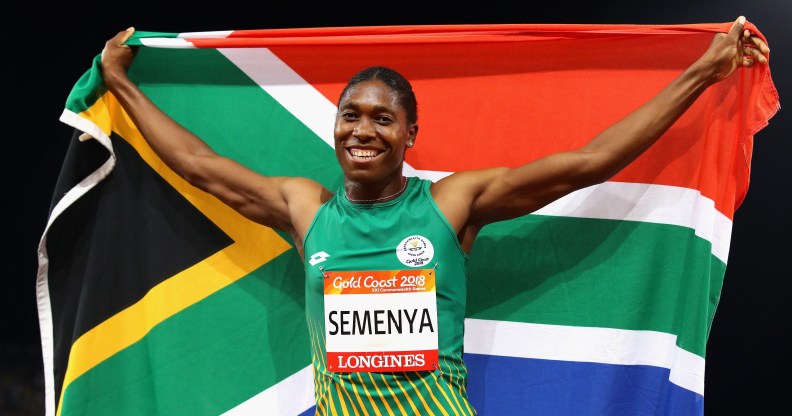Caster Semenya can temporarily compete without medication, Swiss court rules

Caster Semenya. (Francois Nel/Getty)
Caster Semenya will be allowed to run in races of all distances without taking testosterone-reducing medication until at least June 25, a Swiss court has ruled.
Semenya, 28, is appealing an International Association of Athletics Federations (IAAF) decision that required her to take medication to suppress her hormone levels for races between 400m and a mile, according to her lawyer.
As part of her appeal, her legal team asked for a suspension of the IAAF ruling while they appeal it.
The Swiss Federal Supreme Court granted this request and has temporarily suspended the IAFF regulation made on 1 May 2019 that limited the testosterone levels of female athletes. The suspension will remain in place until Semenya’s appeal has been finalised.
The Swiss court, in a statement to BBC Sport, said it had “super-provisionally instructed the IAAF to suspend the application of the ‘Eligibility Regulations for the Female Classification for athletes with differences of sex development’ with respect to the claimant, until the decision on the request for issuance of provisional measures.”
It added: “At present, it is not known when the Swiss Federal Supreme Courts will issue an interlocutory order concerning these provisional measures.”
Semenya’s lawyer, Dorothee Schramm, said, “The court has granted welcome temporary protection to Caster Semenya.”
“This is an important case that will have fundamental implications for the human rights of female athletes,” she said.
The IAAF now has until June 25 to respond to Semenya’s case.
Imposing testosterone treatment on Semenya is ‘humiliating,’ says UN
The landmark ruling on May 1 that said female athletes would have to undergo testosterone restrictions if their natural testosterone levels were higher than “female levels.”
The UN has condemned such treatment as an “unnecessary, humiliating and harmful medical procedure.”
The Olympic 800m champion had been challenging the implementation of rules that would limit the testosterone levels of female athletes.
An IAAF statement in February explained the proposals: “If a DSD athlete has testes and male levels of testosterone, they get the same increases in bone and muscle size and strength and increases in haemoglobin that a male gets when they go through puberty, which is what gives men such a performance advantage over women.
“Therefore, to preserve fair competition in the female category, it is necessary to require DSD athletes to reduce their testosterone down to female levels before they compete at international level.”

